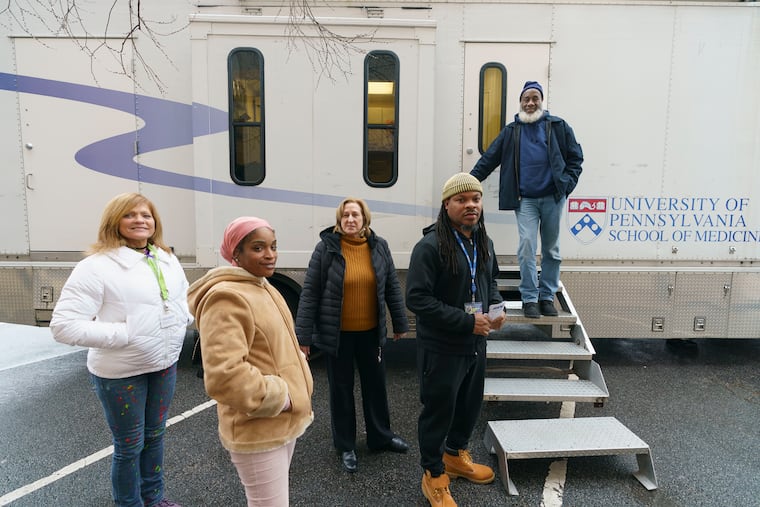Susan Corrigan, a mainstay in Philadelphia’s harm-reduction community, dies at 59
Ms. Corrigan helped people who struggle with addiction reach recovery, but was also deeply committed to ensuring the safety and well-being of people still in addiction.

Susan Corrigan knew what it was to struggle with addiction — and when she achieved her own lasting recovery, her first instinct was to help others get there, too.
But Ms. Corrigan, a mainstay in Philadelphia’s harm-reduction community, was also deeply committed to ensuring the safety and well-being of people still in addiction who weren’t ready to enter treatment yet, her sister Judy McCollum said.
“She said that she was once there, and she wanted to help people into recovery — and if she couldn’t, she wanted to prevent anyone from overdosing,” McCollum said.
Ms. Corrigan, 59, a peer specialist who worked as a health navigator and outreach worker at the University of Pennsylvania and the local public health organization Prevention Point, died suddenly on Friday, March 11.
McCollum said the cause of death was not yet known. Ms. Corrigan’s son Daniel, who works across the street from her home in Philadelphia, found her unconscious there Friday morning; she had been getting ready to bike to work, with a pot of coffee bubbling in her kitchen.
Ms. Corrigan’s passing stunned friends and colleagues she spent years working with and devastated the city’s small, tight-knit harm-reduction community.
Born Nov. 26, 1962, to Anita and Alphonse Conti, Ms. Corrigan grew up with five siblings in Somerdale, and went by “Susie” with friends and family. She shared a birthday with McCollum, her younger sister. “She was 2 years old when I was born, and I was her birthday present,” McCollum said. “She would always protect me — if people in the neighborhood would try to start with me, she would always come up and stick up for me.”
Ms. Corrigan dreamed of raising a family, McCollum said, jokingly calling herself a “domestic engineer.” She had two sons and a daughter. In recent years, the family had endured devastating tragedy: Ms. Corrigan’s son Terrence Corrigan IV was shot and killed by his girlfriend in 2017. McCollum recalls being stunned by her sister’s strength — and capacity for forgiveness.
“She was a remarkable woman,” McCollum said. “She was captivating. Warm. Optimistic. She could make anyone laugh, despite all the pain she lived through.”
Though her family worried about the stress and trauma of the work Ms. Corrigan did in harm reduction, they knew that she cared deeply about her job and the people she served even on holidays and weekends. A native Philadelphian, she navigated complex stigmas around addiction in the rowhouse communities where she worked to expand access to treatment.
In a 2019 article about her work on a mobile medical unit that dispensed the opioid addiction treatment drug buprenorphine in South Philadelphia, she noted that “what happens in the home stays in the home in South Philly.” Ms. Corrigan lived in the neighborhood for 15 years.
But, she said, the families she worked with were eager to help loved ones. “Every participant in the family system steps up to help. The whole family is affected,” she said.
McCollum said Ms. Corrigan’s family lent that same kind of support to her work.
“She was so committed. And she just had this ungodly strength,” McCollum said. “I feel she could take on the world more than any person I’ve ever met.”
In addition to her son and McCollum, Ms. Corrigan is survived by a daughter, Michelle; three grandchildren; two sisters and a brother; her former husband; and many nieces and nephews. Along with her son Terrence, her parents and one brother died earlier.
A funeral will be held Sunday, March 20, at 5 p.m. at Lambie Funeral Home, 8000 Rowland Ave., Philadelphia, Pa. 19136. Interment will be private.